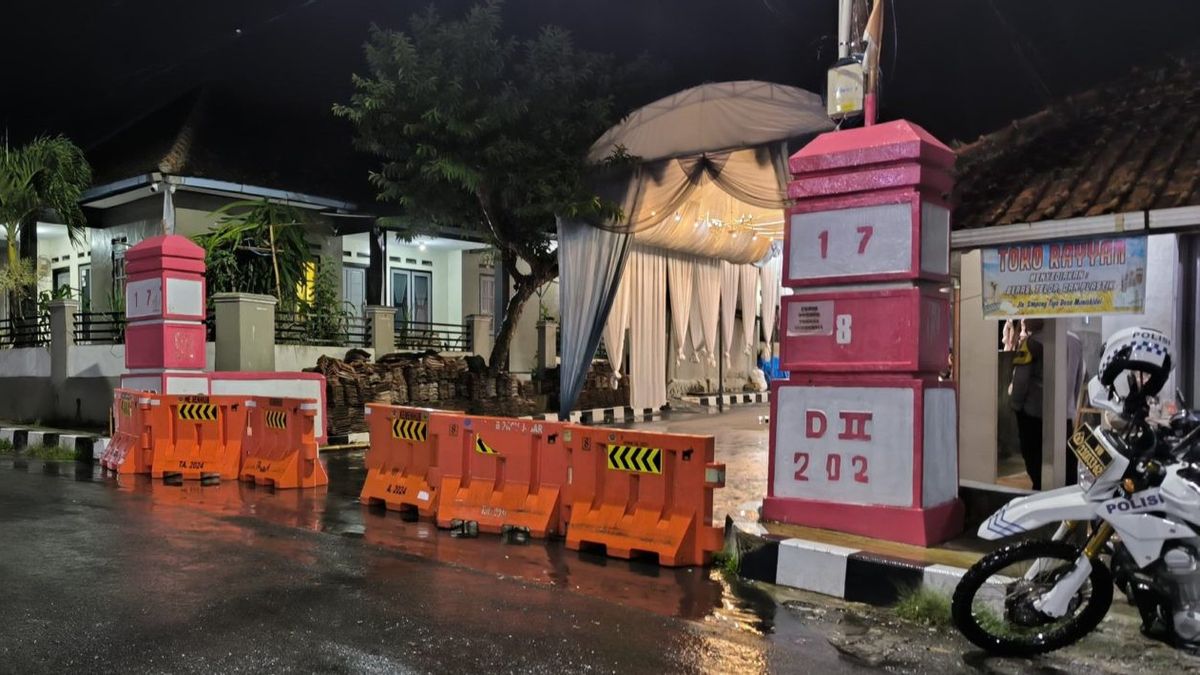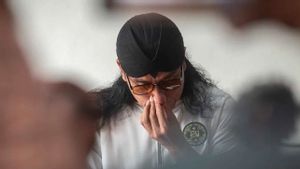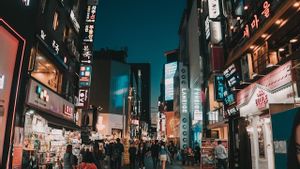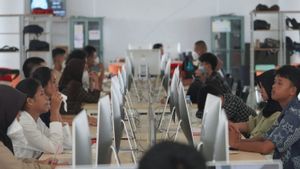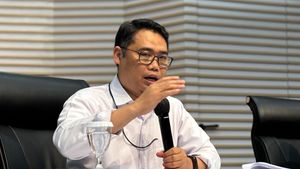JAKARTA The actions of the Regency Government (Pemkab) Kuningan, West Java, which prohibits the annual activities of Ahmadiyah pilgrims have come under fire from many parties. This is another challenge in the era of President Prabowo Subianto's administration, to realize the importance of religious diversity and harmony.
The Ahmadiyah Pilgrims are preparing to hold the annual meeting of Jalsah Salanah which was supposed to be held on December 6-8, 2024, in Manislor Village, Jalaksana District, Kuningan Regency. They come from various regions in Indonesia, including from outside Java.
Firdaus Mubarik, for example, came to Kuningan from Bogor. Arriving there on Thursday (5/12/2024) Firdaus did not immediately come to the event location, but he took the time to travel to tourist attractions.
It was only the afternoon at around 17.00 he arrived in Manislor. However, how surprised Firdaus saw the police gathering on guard at the location of Jalsah Salanah. He was lucky to still be able to enter around the location of the event, but the other groups of worshipers who came were unable. The police did not allow them to enter Manislor Village.
Firdaus witnessed how all access roads in and out of the village were covered by orange road barriers. The Salanah Jalsah activity, which was originally scheduled to be held last week, was canceled.
Jalsah Salanah is an annual meeting for discussion, learning, religious sharing attended by Ahmadiyah pilgrims from various regions in Indonesia. Spokesperson for the Indonesian Ahmadiyah Congregation (JAI) Yendra Budiana said that Jalsah Salanah's annual activity is planned to be attended by 1,000 participants. This event has been prepared long ago.
Three months earlier, they had sent a notification letter to district governments, village governments and local police.
Former Minister of Religion Lukman Hakim Saifuddin regretted the prohibition of Jalsah Salanah, which is Ahmadiyah's annual activity by the Kuningan Regency Government, West Java. Lukman emphasized that the constitution clearly emphasizes that everyone has the right to freedom of association, assembly, and opinion.
"It's very unfortunate, regrettable because there is a unilateral ban. I don't know what the reason for the local government to ban Jalsa Salanah Ahmadiyah," Lukman said when contacted by VOI.
"These are all guaranteed by the constitution. This is an internal activity, an annual activity that local governments should facilitate, not even prohibit," he added.
Acting Regent of Kuningan Agus Toyib firmly prohibits the activities held by the Ahmadiyah congregation. The ban is stated in the Kuningan Regent's Letter dated December 4, 2024 which states that the Salanah Jalsah of the Indonesian Ahmadiyah congregation should not be carried out on the grounds that it will cause regional conduciveness to be disrupted.
Related to this, Lukman said law enforcement officials, or local governments should be fair in responding to the potential for disturbances in public order. He did not close the potential for the harmony of Jalsah Salanah, but that did not mean that this would be an excuse to ban this activity.
"Maintaining this harmony should not be collided with the fulfillment of citizens' rights. This should not be the case, because the fulfillment of rights is no less important," said the Minister of Religion for the 2014-2019 period.
He also highlighted the need for the government to protect and serve the community, as well as the police so that no community rights are neglected.
"So both should be aligned, namely the harmony and rights of the citizens, do not clash. Do not let the impression of one being filled with harmony arise, but by carrying out the rights of the community," said the man who was born on November 25, 1962.
Amnesty International Indonesia Executive Director, Usman Hamid, said this is not the first time the state has shown an intolerant and discriminatory attitude towards the citizens of the Ahmadiyah congregation. On various occasions, acts of discrimination such as dissolution of religious activities, intimidation, expulsion and even persecution of residents of this community continue to repeat themselves.
"This further strengthens the systematic pattern of state discrimination against religious minority groups," said Usman.
In the middle of this year, there was a sealing of the Ahmadiyah mosque that occurred in Nyalindung Village, Garut Regency, West Java. The sealing of the mosque was carried out by a team calling itself the Coordination Team for Supervision of Religious Flows and Flows of Trust in the Community (Pakem) of Garut Regency.
SEE ALSO:
In 2021 there was an incident of destruction of the Miftahul Huda Mosque belonging to the Ahmadiyah Congregation in Sintang, West Kalimantan added a long series of acts of persecution and discriminatory against this minority group.
Another tragedy is the violence in Cikeusik, Pandeglang, Banten in 2011. At that time, elements of the masses on behalf of the Cikeusik Muslim Movement, totaling 1,500 people, attacked the location of the Ahmadiyah congregation. Six people died, one car was burned, and one house was damaged.
Regarding the repeated rejection of Ahmadiyah pilgrims in Indonesia, Lukman Hakim Saifuddin believes that actually not all Muslims are discriminatory towards this minority group.
"Muslims are diverse, there are indeed those who disagree (with Ahmadiyah's teaching), but not a few who understand. That means, it doesn't mean we don't respect their rights," he said.
"Never mind the different sects, such as with Ahmadiyah, with different religions we must respect each other," he said.
The English, Chinese, Japanese, Arabic, and French versions are automatically generated by the AI. So there may still be inaccuracies in translating, please always see Indonesian as our main language. (system supported by DigitalSiber.id)
